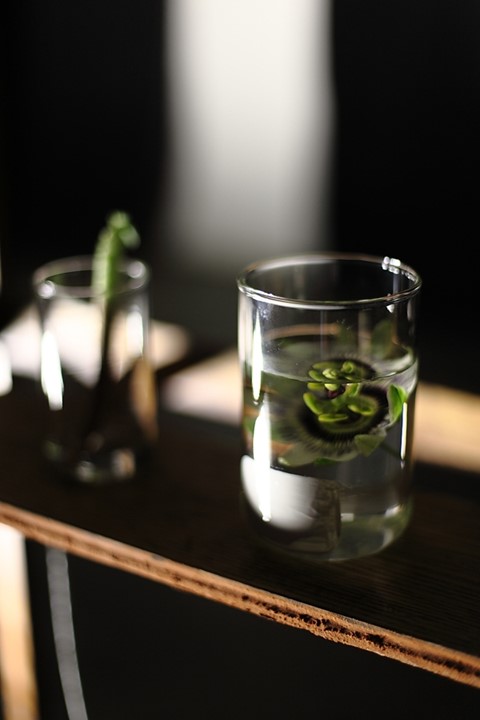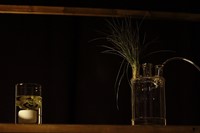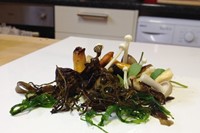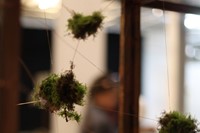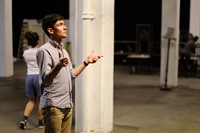As part of the build-up to Frieze art fair in London, The Waldorf Project opens the doors on its first immersive dining experience, Muskmelon, taking place at Netil House in East London...
As part of the build-up to Frieze art fair in London, The Waldorf Project opens the doors on its first immersive dining experience, Muskmelon, taking place at Netil House in East London. Conceived and directed by artist Sean Rogg, a project team including food designers Andrew Stellitano and Blanch & Shock, choreographer Imogen Knight, and production designer Gina Geoghegan have transformed a large, nondescript warehouse studio into a full-on sensory experience with dance, performance and a live soundtrack performed by electronic two-piece, Walls. Over five nights, forty guests per evening will experience eight courses inspired by a central metaphor: the Japanese muskmelon, which is a highly prized, perfectly round fruit that is painstakingly cultivated and often given as a gift. Rogg, who invited us to a recent preview of Muskmelon, explains how this concept of the ‘perfect’ object will play out over the evening. “The theme of this event is about taking something from nature, and showing what happens when man comes along and interacts with the thing, asking: how can it be improved upon? As with the muskmelon, it’s about taking something natural and forcing it to become something unnatural. The first few courses appear to be made of very natural ingredients, but as the meal progresses, everything will become more manipulated, until the final course, which is completely synthetic.”
“The whole meal is an exploration of Japanese aesthetics,” adds Stellitano, who has worked with Bompas & Parr, and who created the Gucci tiramisu for AnOther’s 10th anniversary party. “We’re trying to keep the menu a surprise, but, for example, the first course is about earth meeting sea, with seven different kinds of seaweed and six different kinds of mushroom. We’ve had a lot of time to narrow down our many ideas, and refine them to the smallest detail.”
“Waldorf is similar to some of our previous projects in that it brings in a diverse range of practitioners to explore the eating experience,” says Blanch & Shock, who will be joining Stellitano in the kitchen. “However we have never done anything that approaches this in such a total way. We’ve tried to integrate the meal seamlessly into the performance, with every aspect of the guest's experience taken into consideration. Also, it's been such a treat to pair food to incredible wines, some of which are the last examples of those bottles in the world.”
"The first few courses appear to be made of very natural ingredients, but as the meal progresses, everything will become more manipulated, until the final course, which is completely synthetic.”
Indeed one of the most exciting parts of the event is set to be the wine list. Rogg, who is a self-professed “wine nerd,” has procured some bottles that are as rarefied as the muskmelon itself. One, a 1993 Chardonnay from the acclaimed Sanford Winery in California—at which British art collector Robert Atkin, who donated the wines for the event, is a partner— is nearly extinct, and the final two cases will be enjoyed by Muskmelon guests over the five nights.
“It's great to view the eating experience from so many angles because it all matters” Blanch & Shock tell us. “Food is not just experienced with the senses of taste and smell, but the setting and the sound environment, the style of service all make a difference to the overall enjoyment. It's rare to be able to take all of this into consideration, and that's what we've tried to do.”
The Waldorf Project: Chapter One/Muskmelon runs from 10 – 14 October. Each event lasts for 3 ½ hours and with forty seats available each night.
Text by Ananda Pellerin
Ananda Pellerin is a London-based writer and editor, and Neil Wissink is a visual artist also based in London. More from The Hunger here, and contact The Hunger here.
